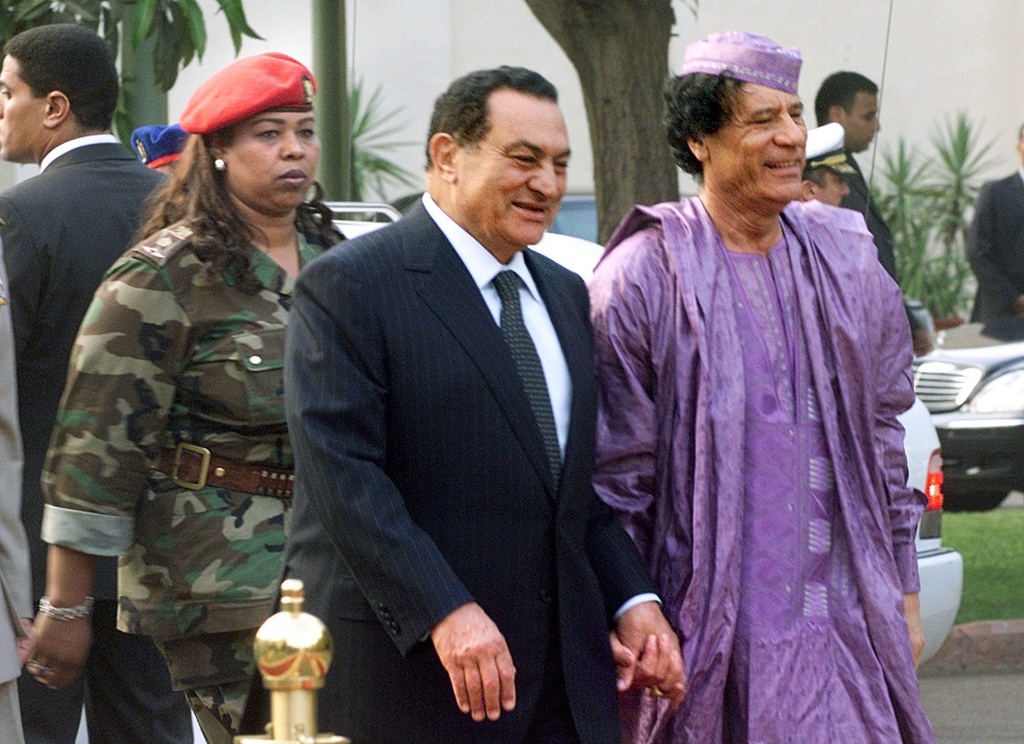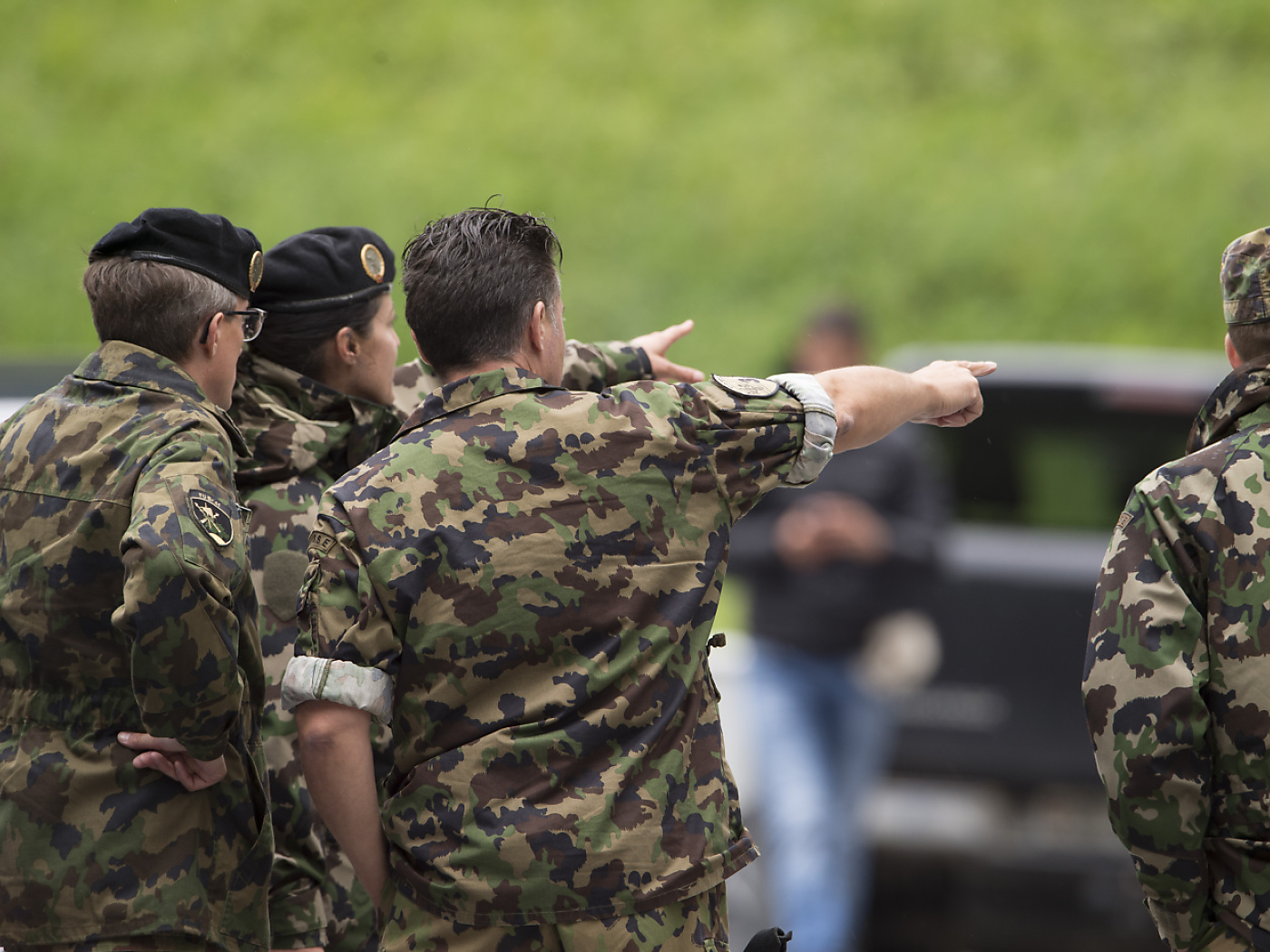Libyans have “broken the fear barrier”

An exile from Libya living in Switzerland tells swissinfo.ch that it is unclear whether protests in the North African state can unseat Moammar Gaddafi from power.
Ahmed el-Gasir of the Geneva-based, non-governmental organisation, Human Rights Solidarity, said the Libyan leader’s control of the army and security forces appeared to be shaky.
For several days, protesters have been calling for the departure of Colonel Gaddafi – the longest serving Arab potentate.
A call made on the internet several weeks ago for a “day of rage” on February 17, was followed in several towns and villages across the country, particularly in Benghazi in the east of the country.
This city has long been a thorn in the side of the Libyan leader. It was only lukewarm in its support for Gaddafi’s military coup in 1969 and has benefited little from Libya’s oil wealth.
On Saturday it was reported by the group Human Rights Watch that 84 people had died in the unrest.
swissinfo: Can you explain why these demonstrations are taking place now?
Ahmed el-Gasir: This is a country that has been run by a dictatorship for 41 years. Following Tunisia and Egypt, the people have finally broken the fear barrier.
swissinfo: But the Libyan people are not demonstrating because they are hungry.
A.G.: The economic situation is very bad because the country is very poorly managed. This is a rich country but you have – according to official estimates – a 22 per cent youth unemployment rate. There are thousands of people graduating and not finding jobs. But unofficial estimates put the figure at 30 per cent or even a little higher.
This is also a country that is being run without a constitution. There have been promises for 10 years to have a constitution. And it’s being run by a political model that is based on the ideas of the dictator. In reality, they have something like a parliament – the General People’s Congress – which has issued a law called the revolutionary legitimacy, by which all the directives and ideas from the Libyan leader are binding by law and must be adhered to. People are yearning for freedom; yearning to have a better future.
swissinfo: What we are seeing now is that the largest demonstrations are not taking place in the capital, Tripoli, but Benghazi. How can you explain that?
A.G.: Benghazi is historically a restless city. It has been resisting the regime since the early 1970s. But since Tripoli is the centre of power they (security forces) have a heavy presence there. I have heard that there have been small demonstrations in two suburbs of Tripoli and a nearby town.
The phenomenon now in the Arab world is that the regimes have lost their monopoly on information. The propaganda machines of the regimes don’t work anymore because people have greater access to information. They have satellite television. They see a different picture of what the regime is trying to convey.
swissinfo: The revolutions in Tunisia and Egypt were in a way facebook and Twitter revolutions. Is there also a generation of young people in Libya who communicate using these social networks?
A.G.: The use of social network forums, facebook specifically, is quite widespread for those who have internet access. But the amount of people who have internet access is not as high as in neighbouring countries. But among those who have access, their presence on Facebook is quite high. There were calls on Facebook for people to go out on the streets on February 17 (Thursday).
swissinfo: What do you think the role of the army is in this process? Is it eager to behave like the armies in Tunisia and Egypt and not use force to suppress the demonstrations, or is it too entangled with the Gaddafi family, and will remain loyal?
A.G.: Gaddafi came from the army. But for 12 years he has marginalised the army. And he has set up what’s called security battalions. They have more power and privileges than the official army, which he has weakened a lot.
We know that in Benghazi and al-Bayda some members of the security battalions refused to use force. So he has used two options: deploying a special police force and resorting to using criminal elements of society, which have been given money and cars and have been organised to attack demonstrators. This is a sign that he has no support from the official security forces.
He’s either keeping the battalions for later use or he has lost their support, so he’s resorting to criminal elements. In al-Bayda, which is 200km east of Benghazi, the people there defeated the central police force on Wednesday, so on Thursday morning two planeloads of soldiers from a special battalion which is commanded by Gaddafi’s youngest son were flown in. These forces are not Libyans – they don’t speak Arabic, but only French – and they caused havoc in al-Bayda on Thursday afternoon causing the death of 30 demonstrators.
swissinfo: Do you think that these demonstrations could eventually lead to the end of Gaddafi’s rule?
A.G.: If other cities join in the demonstrations. On Thursday for example we had people in about ten towns that came out against him. They have been very vocal. And there have also been demonstrations in suburbs of Tripoli. If they spread, I think he will lose control.
swissinfo: What kind of reaction do you expect from the international community?
A.G.: We expect that they withdraw political support for the Libyan regime. This is a regime that has a history of disrespecting the human rights of its citizens. It must be made clear to Gaddafi he has to stop in order to prevent a massacre.
swissinfo: Do you expect more than words, for example from the United States, but also action?
A.G.: They should threaten him with the International Criminal Court. What’s going on amounts to a crime against humanity. In one single day, on Thursday, around 60 people were killed and over three days the total is between 70 and 80. This is a small country and in Benghazi at most 10,000 people will join the demonstrations, so this is a large proportion of killings.
Relations turned sour after a son of the Libyan leader Moammar Gaddafi was temporarily detained in Geneva in July 2008 suspected of mistreating his household staff.
Soon afterwards two Swiss businessmen were arrested in Tripoli as part of several retaliatory political and economic measures.
Despite a visit in 2009 by then Swiss President Hans-Rudolf Merz to Tripoli the two Swiss hostages were not allowed to leave Libya.
In February 2010 one hostage obtained an exit visa, while the other one had to serve a prison sentence for visa violations.
The second Swiss hostage returned home in June 2010 accompanied by Foreign Minister Calmy-Rey and following mediation efforts by the EU.
The Libyan government said on February 15, 2011 that an arbitrator had been named to resolve the longstanding dispute.
The first Swiss merchants settled in Libya at the end of the 19th century. Switzerland recognised the new state immediately after Libya’s declaration of independence in 1951 as the United Kingdom of Libya.
At that time there were about a dozen Swiss nationals living in the country.
Swiss geologists, technicians and other experts also settled in Libya as the oil industry there developed and prospered. Swiss lawyers, for example Eduard Zellweger (1901-1975), also advised the Libyan government.
From 1962 onwards, the Swiss embassy in Tunisia represented Swiss interests in Libya. In 1965 a consulate was opened in the Libyan capital Tripoli, and an embassy was opened in 1968.
The king was overthrown in a coup led by Moammar Gaddafi in 1969.
Relations remained good.
Switzerland did not join the international sanctions against Libya after the blowing up of an aircraft over Lockerbie in 1988.
Libya’s Tamoil oil group took over an oil refinery in Switzerland in 1990, and has over 300 service stations in the country.

In compliance with the JTI standards
More: SWI swissinfo.ch certified by the Journalism Trust Initiative














You can find an overview of ongoing debates with our journalists here . Please join us!
If you want to start a conversation about a topic raised in this article or want to report factual errors, email us at english@swissinfo.ch.